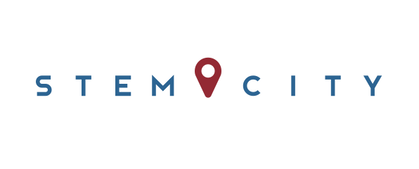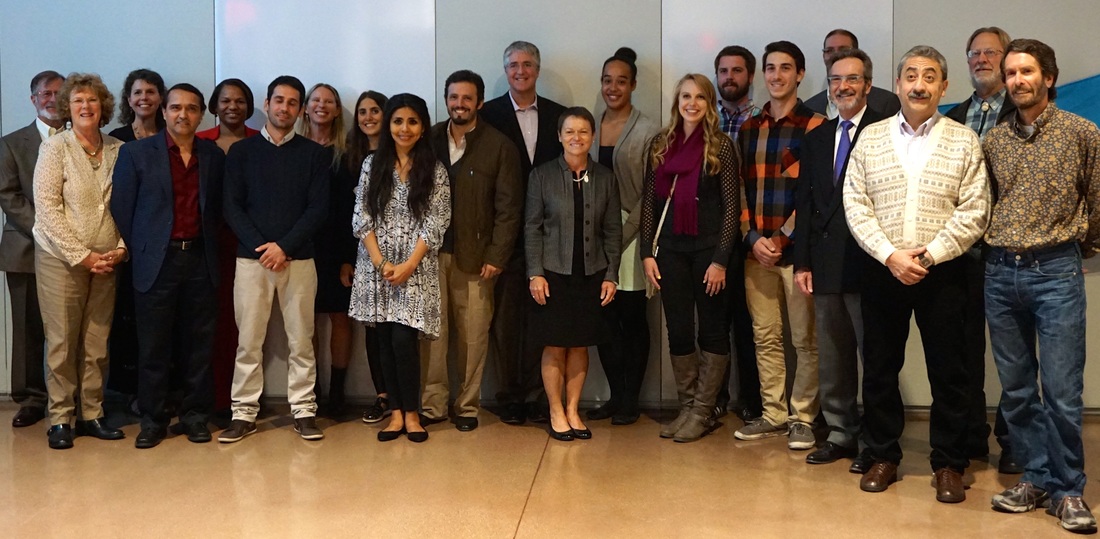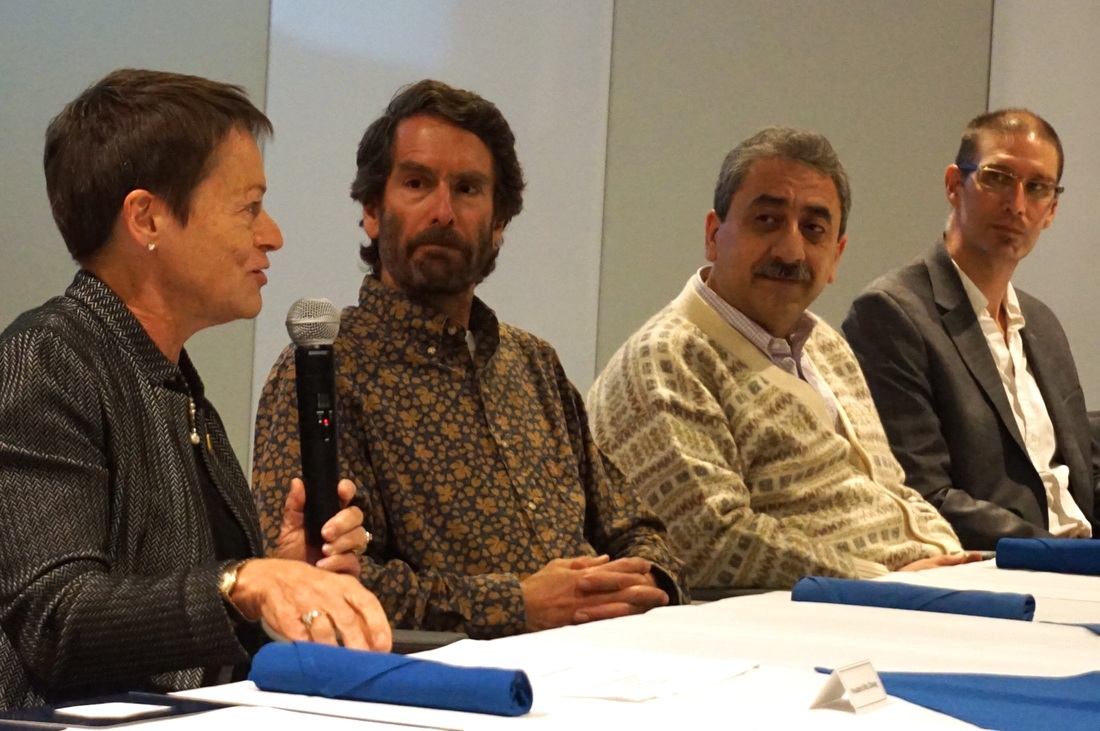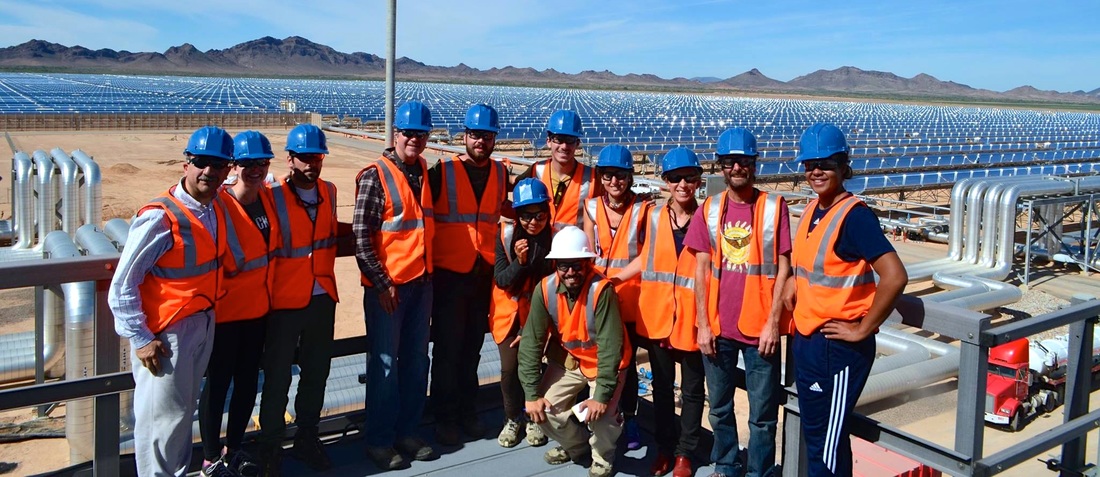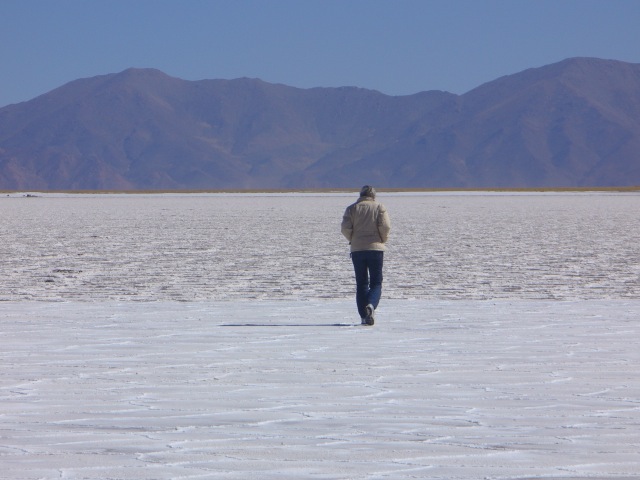|
100,000 Strong in the Americas with NAU's Global Science and Engineering Program The energy sources that support modern society are changing and will continue to change; one NAU group is involved in studying how these sources vary between countries. NAU's Global Science and Engineering Program (GSEP) is a key player in the 100,000 Strong in the Americas Innovation Fund. This international educational initiative of the Obama administration is aimed at enhancing Western hemispheric competitiveness, increasing prosperity, and providing study abroad opportunities to better prepare a globally aware and culturally competent workforce. GSEP received a grant last spring for their project, Geology and Policy: Energy Resources in the Americas, Now and in the Future. This project will begin a long-term institutional exchange between NAU and the Universidad Nacional de Tucumán (UNT) in Argentina in geology and energy policy research. Four students from NAU and four from UNT were selected in a competitive process to represent their institutions in this exchange program. The NAU students are all double (or triple) majors in a science/engineering field and a language as required by the rigorous GSEP curriculum. The four NAU students and their majors are:
The students met for the first time at a welcome dinner on October 19th at NAU's International Pavilion. NAU provided the Argentinian contingent with a warm welcome from NAU leaders including President Rita Cheng, Interim Director of the Center for International Education Liz Grobsmith, CEFNS Dean Paul Jagodzinski, and SESES Director Paul Umhoefer. In preparation for the Arizona field course, there were six virtual class meetings, discussions, and supplementary readings on US energy issues. The project is using a novel approach - a mixed method of virtual classes preceding the field courses that provides a theme and grounds this exchange program. Professors Michael Ort and Erik Nielsen from NAU, and Roberto Lencina from UNT, provide leadership and ideas for student research opportunities. Michael and Roberto have been colleagues since 1987, when Michael did fieldwork in Argentina. Roberto specializes in economic geology and is also a skilled mediator in energy and resource issues. Erik brings a strong background in natural resources, economics, and public policy to this project. During the field course from October 19th - 28th, the project participants visited natural gas, coal, and uranium mines, plus wind, hydroelectric, combined gas/steam, and solar power plants. The students and faculty explored natural resources in the southwest from source to production, examining the many social, political, and scientific dimensions of each energy source. In the spring, the Argentine faculty and students will lead the virtual classes in preparation for the NAU group's visit to northern Argentina from May 15th - 27th. The Argentine field course will explore the geology and natural resource energy production sites in northern Argentina including the salt flats pictured below. This field course exchange begins a long-term bilateral exchange for NAU and UNT. The NAU students will be the first to participate in the exchange, completing their year abroad in Tucumán, Argentina, and continuing with the 100K Strong project theme for their internship research. Melissa Armstrong, Director of Interdisciplinary Global Programs at NAU, and the project leader, anticipates that UNT will become the natural pathway for the Geology/Spanish and Environmental Sciences/Spanish students in the Global Science and Engineering Program at NAU.
For More Information: Link to the GSEP homepage to learn more about Going Global at NAU. Link to the NAU News article on the 100,000 Strong in the Americas award.
0 Comments
Leave a Reply. |
